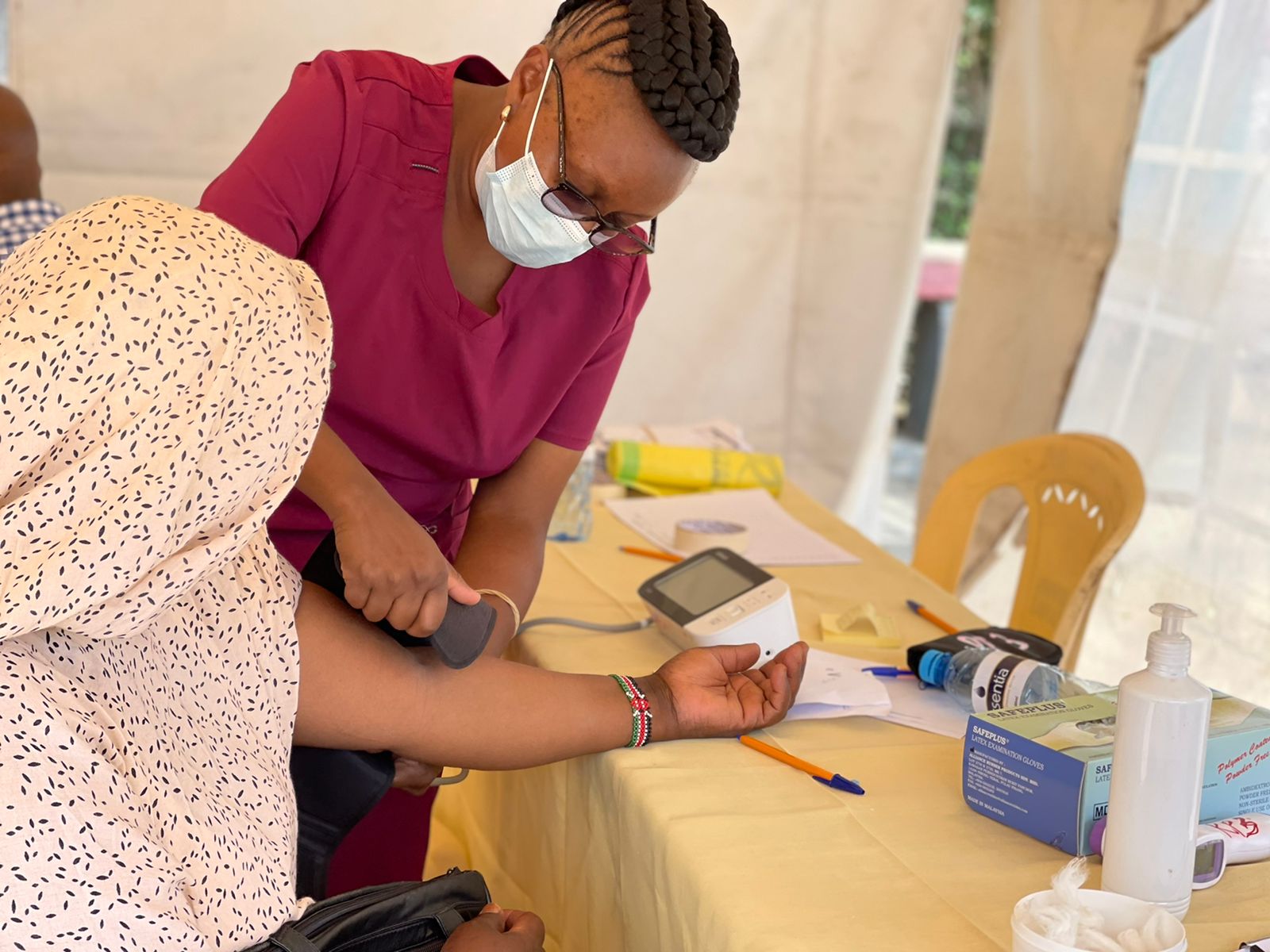RefugePoint’s Urban Refugee Protection Program (URPP) in Nairobi, Kenya, provides a holistic range of services to more than 12,000 urban refugees each year. We know that each component of our holistic approach, which includes access to healthcare, counseling, rent and food assistance, education support, and small business grants, is crucial on the path towards self-reliance – where refugees are able to find stability and ultimately able to take care of their own essential needs. Ensuring that people are healthy and that their medical needs are met is a crucial component on the journey toward self-reliance.
At the start of 2022, RefugePoint’s medical team was determined to improve access to health services within refugee communities in Nairobi, Kenya. In order to achieve this goal, the team created an outreach plan which targeted refugee communities in six urban areas in Nairobi. In addition to serving refugee populations, the medical outreach sessions that the team coordinated were also open to local community members.
By the end of April 2022, the team completed five medical outreach sessions in the Kasarani, Kayole, Kawangware, Githurai, and Rongai areas of Nairobi. During the outreach sessions, patients received specialized consultations and were treated for medical conditions including cataracts, eye infections, diabetes, worms, and hypertension.
According to Rebecca Nyokabi, the Community Health Officer at RefugePoint, RefugePoint began offering medical outreach sessions in 2011, after an assessment highlighted that there was a gap preventing the urban refugee community from easily accessing medical services. Some diseases, like diabetes and hypertension, are often diagnosed for the first time during the outreach sessions, as the patients are unaware of the ailments. “We wanted to find out if the diseases being diagnosed in the RefugePoint clinic were the same ones being identified in the community. This gave us an opportunity to assess the external environment in terms of new diseases that were not being captured at the RefugePoint clinic,” said Rebecca.
In 2020, the medical outreach sessions were suspended as a result of the COVID-19 pandemic. With most of the facilities under lockdown, refugees and at-risk Kenyans, who were already marginalized, experienced an even more difficult time accessing medicines, medical support, and counseling. In November 2021, the RefugePoint team re-launched the medical outreach sessions. Since then, a total of seven medical outreaches have been held in different locations, each targeting an average of 500 patients, with over 4,000 patients treated.
For these medical outreach sessions to be successful, Rebecca says they work with local stakeholders as a refugee supporting agency to create awareness and opportunities for partnerships. “We partner with the Ministry of Health, Hesed Africa, National Council of Churches of Kenya, HIAS, local churches (including refugee-led churches), schools, social centers, and other like-minded institutions. This is an opportunity to create awareness in terms of what RefugePoint does and the importance of refugees integrating with Kenyans to access health services, but most importantly other non-health-related services.”
The most recent medical outreach session was carried out in April 2022, in the Githurai Area of Nairobi, where a total of 515 patients were treated. Of these, 183 were refugees while 332 were Kenyans living in the same communities. It is clear that these medical outreach sessions play a critical role in extending the reach of healthcare activities which can directly improve the health status of both individuals and communities. The next medical outreach is planned for the Huruma area of Nairobi, with over 600 beneficiaries expected.
